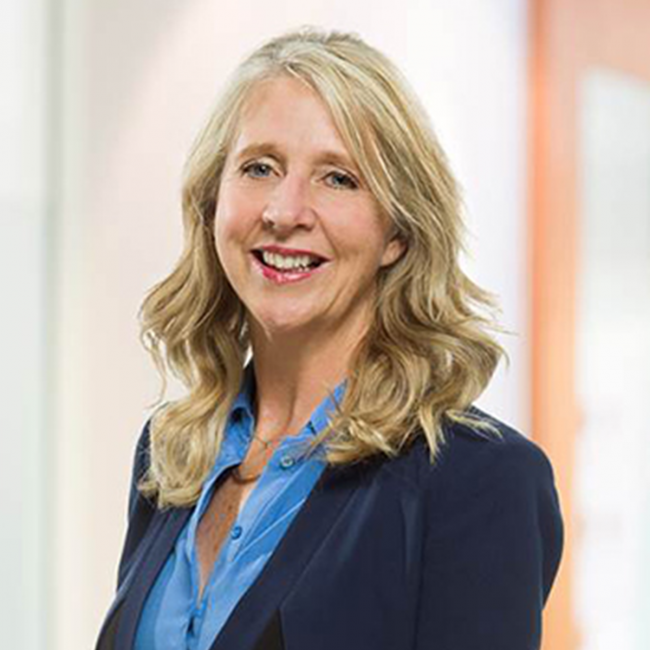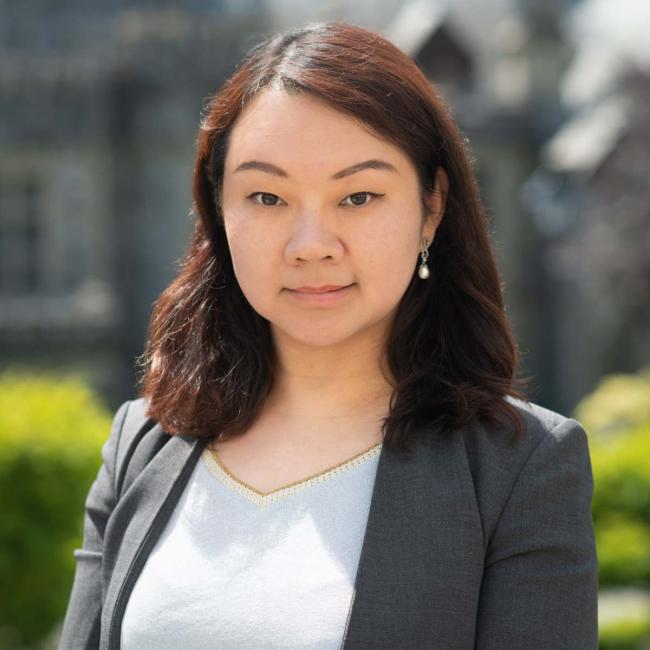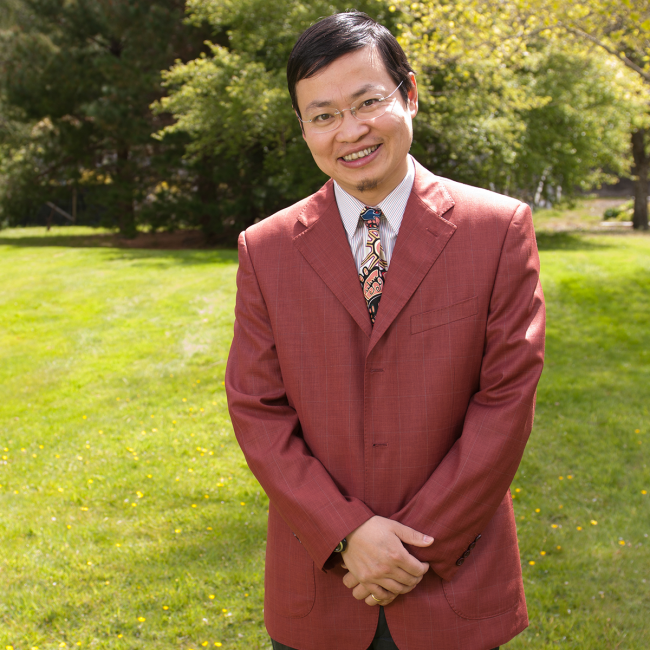Apply an intercultural lens to communication principles, practices, management and governance. Consider the role of communications in workplace culture, reputation management and social change.
Upcoming offerings
September 08, 2025
Application deadline ℹ
Delivery model
Domestic tuition
International tuition
Related Schedules
March 02, 2026
Application deadline ℹ
Delivery model
Domestic tuition
International tuition
Related Schedules
September 07, 2026
Application deadline ℹ
Delivery model
Domestic tuition
International tuition
Related Schedules
Request more information
Program description
Organizations need communication professionals with thoughtful and effective cross-cultural communication skills.
The Graduate Certificate in Strategic Global Communication responds to that need.
In this program, you'll gain in-depth understanding of intercultural theories and how to apply them on the job.
You'll study strategies for reputation, crisis and change management and examine how workplace culture influences business outcomes.
You'll learn cultural and governance principles and think about the role communications plays in promoting — or impeding — social change.
Throughout the program, you'll apply an intercultural lens.
You'll be empowered to lead communication initiatives that support community and organizational development.
Who’s it for
This certificate is designed for people who specialize in organizational development and communication. It's a good fit for professionals working in the following fields: advocacy, diplomacy, development and social change.
You can build from here
You can apply credits earned in the Graduate Certificate in Strategic Global Communication toward a master's degree, either the MA in Intercultural and International Communication or the MA in Interdisciplinary Studies.
The three courses you'll take in the Graduate Certificate in Strategic Global Communication are part of the Master's in Intercultural and International Communication.
You can also apply course PCOM 635 toward the MA in Professional Communication.
Program outcomes
Once you've completed this program, you'll:
- have skills in organizational communication applicable to crisis management, corporate image, identity and reputation, organizational culture and culture change, leadership theories, social relationships and networks, communication audits, power and control in organizational life, conflict in organizations, ethics and values and corporate social responsibility
- be able to analyze organizational structures and management styles with a focus on culture
- have insight into the historical and contemporary nature of issues and theories that have influenced the field of development communication
- be skilled at exploring the complex relationships between communication and socioeconomic development and the role that communication plays in promoting (or impeding) social change and development
- have tools for professional and personal development in a diverse society and workplace
- be skilled at developing a rationale and framework for interdisciplinary research projects, which can be combined with communication, sociology, psychology, business, mass media and developmental studies
Program delivery
This program is delivered through a blend of online learning and an on-campus residency.
Online learning
Online courses consist of assigned readings, synchronous or asynchronous lectures, interactive discussions, and individual and team assignments.
You’re expected to meet deadlines and contribute meaningfully to your class. Your contributions are a big part of everyone’s learning.
You'll take the program's three online courses at the same time. The courses each take approximately 10 hours of work per week.
You'll start your program with a non-credit, but required, course about academic integrity.
Residency
This blended program has one two-week residency.
Residencies are intensive and immersive. Many students say this time together is the highlight of their program.
During your residency, you can expect to:
- attend classes full time (e.g., Monday to Friday from 8 a.m. to 5 p.m.)
- complete homework and individual and team assignments outside of class hours
- take part in extracurricular activities
Courses
Faculty
Transfer agreements
Refine results
Standard admission
- Completion of a four-year (or comparable) undergraduate degree from a recognized post-secondary institution, with a minimum GPA of 'B' (3.00/4.33).
- Normally, at least one year of work or volunteer experience, preferably in a leadership capacity. This experience should have immersed the applicant in a multicultural, intercultural, or international setting and fostered a basic understanding of intercultural communication.
Flexible admission
Applicants who do not meet the standard admission requirements will be considered for flexible admission and assessed as follows:
- All applicants must show evidence of having sufficient knowledge, skills and abilities to complete a demanding academic course of study at a master's level and have significant professional communication experience.
- Applicants without an undergraduate degree, but more than three years (90 credits) of relevant post-secondary education, should have at least two years of relevant work experience, preferably in a leadership capacity.
- Applicants with two to three years (60-90 credits) of relevant post-secondary education should have at least five years of relevant international/intercultural work experience in a leadership capacity.
- Applicants with less than two years (60 credits) of relevant post-secondary education should have at least ten years of high-level, professional communication experience in a leadership capacity.
English language proficiency
- If English is not your primary language, please review our English language requirements.
Additional recommendations
- Evidence of having sufficient knowledge, skills and abilities to complete a demanding academic course of study at a master's level.
- Applicants may be requested to participate in an interview as part of a holistic adjudication process.
- If English is not your primary language, please review our English language requirements.
All applications to this program require submission of the following information and supporting documents before your file can be assessed for admission:
Application form
In order to apply online, you will be required to create a log-in account using your email address. You will be required to list all credit courses and/or programs you have completed or are currently enrolled in. An application fee will be required. If your application fees are being paid by a third party, review sponsored student information. Once submitted, you may check the status of your application at any time.
Missed your application deadline? While we can’t make any guarantees, we may be able to accommodate late applications if there's still space and enough time to process. If you're interested in an intake that is now closed to applications, apply for the next available intake and email Admissions with your preferred start date. Make sure you’re prepared to submit your program's required documents right away. We can't make an admissions decision without them.
Official transcripts
Applicants are responsible for arranging for the submission of official transcripts from ALL post-secondary (higher education) institutions currently or previously attended, for all credit courses and/or programs. Transcripts are not required for non-credit programs or courses, though some programs may require proof of professional certifications or designations.
Transcripts are considered official only if submitted directly by the Registrar or other recognized authority of the providing institution in the institution's original, sealed envelope. If the envelope has been opened, the transcripts are no longer official and new (official) transcripts will be required to complete your application.
All international transcripts or credentials are subject to an international transcript and/or credential evaluation.
Personal statement
The personal statement should be at least a three-page letter indicating your motivation for seeking entrance to the program. Your statement should comment upon your personal and career goals, the expectations you have for the program in relation to the achievement of your goals, and the strengths you feel you can bring to the program. If you are seeking equivalency for some part of the required years of university/college study, please expand upon why you think your life and work experience and/or related formal education and courses merit adjudication under the flexible admission process.
Letters of reference
Your application requires two letters of reference. Ideally, these letters speak to your academic potential, your professional expertise and your personal attributes. The preferred letters of reference are academic references and professional references.
- Academic reference: Academic letters of reference should attest to your academic achievement, study skills, teamwork, leadership potential, human relations, flexibility, communication and technical skills.
- Professional reference: Professional letters of reference assess your current or previous performance in your career. The letter can address areas such as communication skills, interpersonal and leadership skills, management potential, and work ethic.
Detailed résumé
Your detailed résumé should include the following:
- Education: List all post secondary education, degrees, diplomas, and certificates you have achieved.
- Work experience: Please include name of organization, length of service and a brief description of duties.
- Voluntary/unpaid work experience: List and describe any voluntary/unpaid post-secondary employment and/or community service experience. Please include the name of the organization, length of service, and a brief description of duties. List positions you have held in this service.
- Information technology training and experience: Briefly describe your level of training and experience in the use of information technology including computers, software and telecommunications networks as tools for business, education, teaching and personal use.
- Professional memberships/affiliations: List memberships and positions you hold/have held in professional associations, service clubs, community/volunteer sector.
- Other relevant information: Provide any other information which you believe is relevant to your application and will be of assistance to the review committee.
Portfolio (upon request)
If a portfolio is requested, it should include digital samples (disk or flash drive) of completed work such as projects you have managed, reports, published writing, syllabus outlines of courses you have taught, etc.
If applicable:
- Applicants declaring permanent resident or Convention Refugee status in Canada, must submit a copy of their Permanent Resident Card (PR card) along with their application.
- Transcript evaluation fee or credential evaluation report, if submitting international transcripts.
- An official English language proficiency score report or other evidence of proficiency if English is not your primary language.
- Other information or documents as may be requested to determine your eligibility.
For information on how and where to send your supporting documents, please refer to the document submission guidelines.


